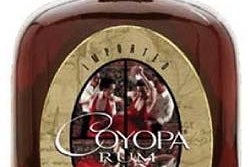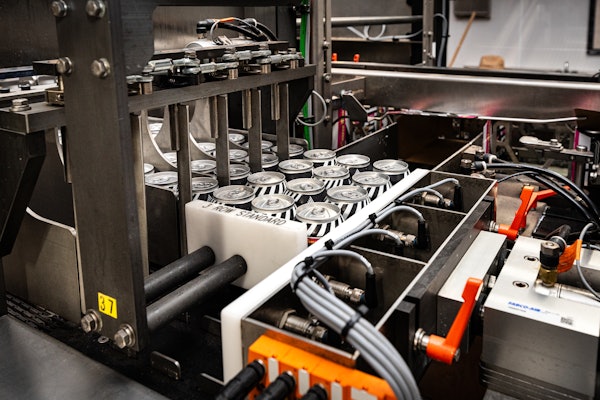Food marketers like Nestlé USA, Glendale, CA, may have to repackage key products after the Food and Drug Administration finally decides which of nine nutrient-content claims it wants to define for carbohydrates. These definitions will open the door for companies to use, for the first time, FDA-certified terms such as “excellent source” of and “low,” or “reduced” carbohydrates. The FDA is also set to announce a separate, less advanced rulemaking for defining the term “net” as it applies to carbs.
In a letter to Sheryl Marcouiller, chief counsel, food law, at Kraft Foods Global, Inc., Northfield, IL, Barbara Schneeman, director of the office of nutritional products, labeling and dietary supplements at the FDA, said the agency had completed its review of the Kraft petition and “would make every effort” to publish a proposed rule by June 30, 2005.
Kraft, ConAgra, Frito-Lay, and Unilever have each submitted petitions to the FDA asking the agency to set standards for carbohydrate label claims.
In the absence of those FDA-approved carb claims, Nestlé, like other companies, slapped a somewhat meaningless “CarbSelect” label on two of its PowerBars, Coffee Mate, and its Crunch and Baby Ruth candy bars. Ken Mercurio, director of regulatory and nutrition for Nestlé, admits that he doesn’t know what the CarbSelect implies about the carbohydrate content of those products. “But we got a lot of pressure from brand managers to put ‘carb something’ on those product labels and packages,” he added.
Nestlé isn’t alone, of course. Food packagers have introduced numerous new carb-conscious products, each with its own stylized carb-quizzical packaging copy. Breyers sells CarbSmart ice cream. Kraft promotes its Balance Bars as “low-glycemic.” Post has its CarbWell Peanut Butter breakfast bar. Hershey’s sells a Carb Alternative Kit Kat bar. Dannon has Light ‘n Fit Carb Control yogurt snacks. What these terms mean is anyone’s guess.
Mercurio says that Nestlé is still interested in the FDA definitions of terms such as “excellent” and “good” source of carbohydrates.
In addition, Nestlé might have to rip up some packaging for products that make a claim of “net” carbohydrates. This is not one of the nine nutrient-content claims the FDA typically approves. But the industry wants the FDA to define “net” carbohydrates, too.
The ‘net’ carb issue
Nestlé lists “Impact Carbs”—which is its synonym for “net”—for its two Pria bars and two candy bars. The Nestlé Crunch package, for example, has a circle under the CarbSelect logo on the front display panel with the term “Impact Carbs” and “3.5 g” inside the yellow circle.
The FDA allows companies to make a “net” carb claim if it is not “false and misleading” and is adequately explained on the label for the consumer. “The fact that we are not currently objecting to ‘net’ carb and similar statements does not constitute an opinion by FDA that we believe such information is appropriate on foods,” says Sebastian Cianci, an FDA spokesman. To define “net” carbs, the FDA will issue an advance notice of proposed rulemaking.
The proposed rule on the nine nutrient-content claims for carbs responds to the petitions from the four food companies.
The idea is to give companies permission to use standard nutrient-content claims for carbohydrates that will have meaning to consumers.
Alison Kretser, senior director, scientific and nutrition at GMA, says, “The sooner FDA gets out the regulation the better. And you don’t often hear industry asking for regulations.”
Order from chaos?
The FDA will try to bring order to the Wild West of competing carb claims. A company can link the word carbohydrate with any other word, or string of words, on a food package, as long as the claim is not “false or misleading.”
So a company can say its product is Carbolicious, or CarbFab or CarbKinky, or whatever. As for any requirement that any term have any clear meaning, well, there is no requirement.
That explains the proliferation of carb claims on food. The carb claims made by Nestlé, Breyers, Kraft, Post, Hershey, Dannon, and others are all perfectly fine, as far as the FDA is concerned. What’s more, those companies will still be able to use these meaningless carb terms once the FDA finally defines the nine nutrient claims for carbs.
So food industry focus is now sharper on such definitions as “net,” “excellent,” and “good” source of carbohydrates, terms which were requested in the 2003-2004 petitions, plus newly emerging claims which the FDA is likely to deal with, such as “low-glycemic.”
“Consumer interest in the type of carbohydrate in a food is strong,” reports Kretser.
























